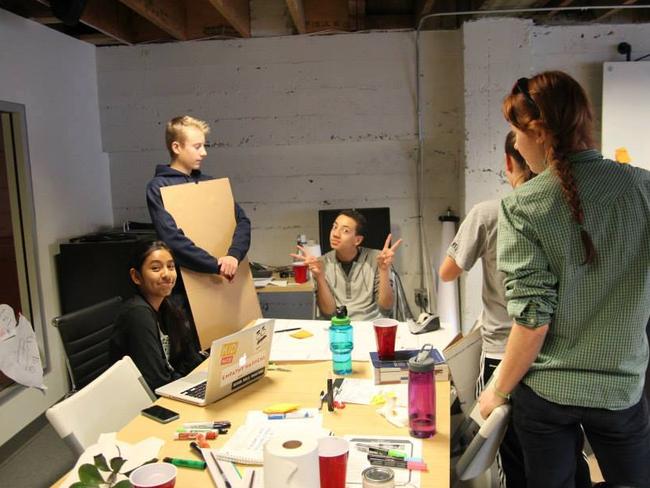Meet the teen tech geniuses who will put you to shame
MARC Wong built an app to fight obesity at the age of 12. Now 17, he works with neuroscientists and top tech firms, and runs a global network of whiz-kids.

MARC Wong built his first app by the age of 12, set up an online community for teenage tech fans by 15 and spends five hours a day designing video games for neuroscientists at his local university.
Now 17, he’s led networking events with the industry’s world leaders: iPod creator Tony Fadell; the Oracle team that pulled off the biggest shock win in America’s Cup history and executives from Apple.
The San Francisco teenager’s latest project is gathering like-minded young people from across the world for the first global teen tech summit: it’s likely to be an intimidating affair.
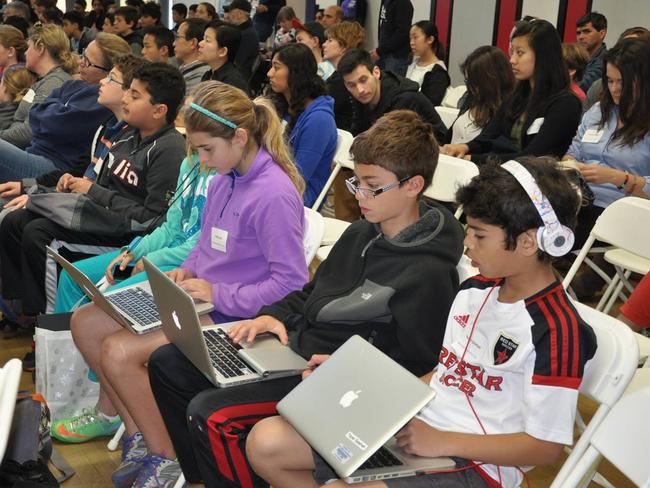
“It’s kind of about access, some schools don’t have the same tools or resources,” Marc told news.com.au. “But it’s also about having different points of view on how to solve different problems. The more diverse a group of people you have trying to solve a problem, or with access to tools to solve a problem, the more interesting solution you’ll get.
“We try to have a keynote speaker and then afterwards we have small group workshops. One of the most popular ones we had was how to make an iPhone app.”
Marc started TeenTechSF in San Francisco, there are now groups in New York and Washington and he’s recruiting teenagers from other countries to run a simultaneous live-streamed event in November.
“When I was on the East Coast visiting colleges I went to this school and met with some of the students there who were really passionate about starting it up. They had probably one of the most successful events. I go to a bilingual school for English and French so I’m trying to reach out to people in France.”
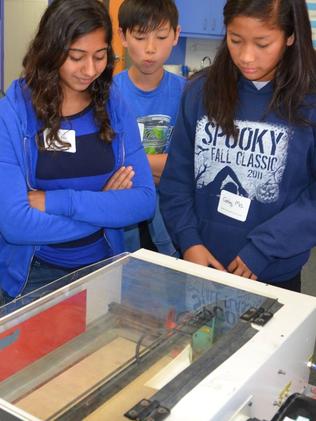

Marc is far from the only teenager in Silicon Valley with this level of drive. Many attend “hackathons” organised not only by their peers, but by major companies in the Bay Area.
High school students are taken to imposing office buildings, where they eat and sleep for 24 or 48 hours while creating a team project to present to judges at the end. Many stay up all night using 3D printers and company resources to design innovative products that sometimes become their full-time jobs.
Dropping out of school or university isn’t uncommon, but it’s a risk. Without formal education, kids on the start-up wagon can experience a painful reality check if things go wrong.
At the centre of the tech world in San Francisco, many leave college to live in share houses like the famous “Mission Control”, which operate like incubators for their start-up companies. Everyone is hoping to be like famous dropouts Mark Zuckerberg, Bill Gates or Steve Jobs. No one is old enough to drink, but they wouldn’t have time for that anyway.
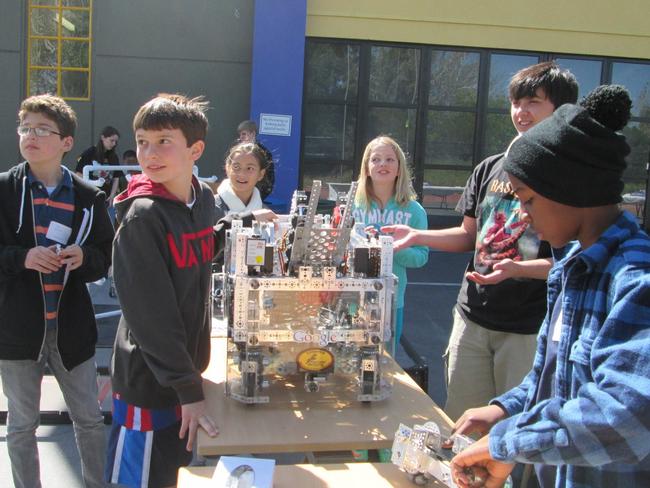
Marc says he gets the appeal of being “surrounded by other people who are really passionate and creating their own projects”, but he’s taking up his place studying computer science at Stanford next year.
“It’s important as an avenue to explore. When you’re in high school and college, it’s the time you have to take risks.”
Living in San Francisco allows him direct access to cutting-edge technology projects. At 14, he joined a group of teenagers working with San Francisco Public Library on The Mix, a space dedicated to young people, with a 3D printer, video studio, sound studio and rental laptops. The young people worked with the architects from conceptualisation to creation.
Marc says the openness and mentoring culture of the industry was vital in helping him set up his organisation. “All the people who are in the tech community were really positive. They weren’t thinking, ‘This kid is only 15, how could he ever do this?’, they were thinking, ‘This is a great idea, I want to be part of it.’ All the speakers volunteer their time.”

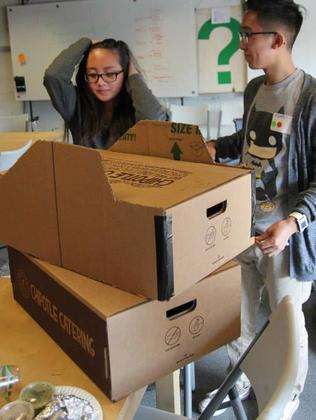
He thinks the most exciting development happening is that of the “internet of things”, in which any object can have its own artificial intelligence.
He gives the example of a smart thermostat. “It’s an ordinary object that people have in their house and they don’t really pay attention to it, but using technology [you can] really improve it and make it know your preferences.”
The advantage for teenagers is that they are totally unfazed by the spread of technology into every aspect of their lives.
“Sometimes being able to be connected to everyone is really overwhelming so I think it’s good to be able to turn if off and get separated, get isolated,” said Marc. “But everyone in the younger generation is growing up with technology. It feels normal to be connected, it doesn’t feel weird at all.”
Find out more about TeenTech Global Youth Summit by liking the TeenTechSF Facebook page or email teentechsf@gmail.com.
